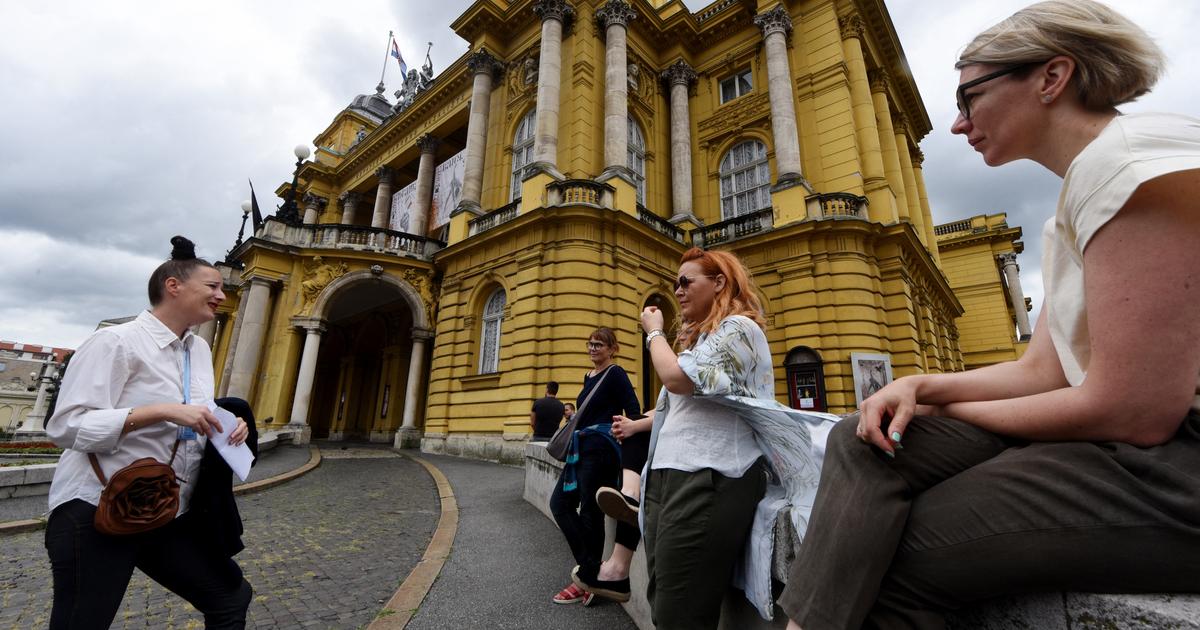Not a street bears his name, not a statue bears his likeness.
In Zagreb, Croatia, a new "Tito tour" aims to retrace and explain the legacy of the former boss of Yugoslavia, still controversial decades after his death.
Adored by some for his unifying charisma, hated by others for his authoritarianism, Josip Broz Tito remains a divisive character in the former Yugoslav Republics.
Danijela Matijevic, organizer of the tour, explains having had the idea in 2017 when the municipal authorities renamed Tito Square in the capital.
Decision which only confirmed a tendency of the authorities to want to erase the Yugoslav past of Croatia, where Tito was born of a Croatian father and a Slovenian mother.
Gradually, plaques, monuments and street names were changed to other historical figures or nationalist figures.
But for Danijela Matijevic, 39, this part of the story should not be hidden.
“
Tito was unquestionably one of the political giants of the 20th century
,” she says.
The 'March with Tito' tour, launched a year ago, takes visitors to eight sites in central Zagreb related to the former leader and his supporters, the anti-fascist movement founded at the start of World War II.
The tour passes through the old Tito Square, the main train station from where the pro-Nazi Ustashi regime deported people to concentration camps, from where the statues of two resistance heroine sisters.
Captured and tortured by the Ustashi, one died and the other committed suicide.
Read alsoTravel to Istria, Croatian paradise for hedonists
Non-alignment and authoritarianism
Tourists are invited to reflect on the successes of the Yugoslav leader as well as the ills of the former Yugoslavia.
Denis Lovrovic / AFP
“
The only thing they revealed to their torturers was their name
,” the guide told a group of four women in front of the busts of the Bakovic sisters.
"
I always get chills here
."
Tourists are invited to reflect on the successes of the Yugoslav leader as well as the ills of the former Yugoslavia.
He is known around the world for his refusal to align with East or West during the Cold War, becoming one of the founding fathers of the Non-Aligned Movement.
This positioning allowed the country to stay away from the chaos of this period and to develop a certain prosperity.
"
Tito had good relations with the West but did not neglect his relations with the East either, placing Yugoslavia somewhere in the middle, taking advantage of both sides
," says historian Hrvoje Klasic.
But many former Yugoslavs also remember that Tito had suppressed all opposition and all nationalisms with an iron fist.
After his death in 1980, the mosaic of peoples and religions that made up the Yugoslav Federation held out for only a decade before exploding into a series of wars that claimed more than 130,000 lives.
After independence in 1991, Croatia turned its back on its Yugoslav past, presented as an aberration.
Danijela Matijevic, whose two grandparents fought in the partisan ranks,
Read alsoCroatia inaugurates historic bridge to Dubrovnik, bypassing Bosnia
Threats and hate messages
She admires the way this country confronted its past, which inspired her project.
“
I was blown away by the way the Germans handled their history
,” she says.
But not everything goes smoothly.
Since she started her "Tito tour", the guide has been the target of hate messages on social networks and has also been threatened with violence, which has triggered the opening of an investigation by the authorities.
In December, a right-wing city councilor railed against Zagreb's tourist board for including information about the visit in its brochures.
"
It's absolutely unbearable, (...), an ideological provocation and a shame for Zagreb
", had launched Igor Peternel.
An opinion that does not share those who have made the course.
Vedrana Basic, an economist, said she was happy "
to learn something new
", saying it was difficult "
to hear anything about Tito in Zagreb
".
Tanja Simic, a retired journalist, agrees.
“
We must capitalize on our history for tourism purposes, whatever we think of certain aspects of it
”.

